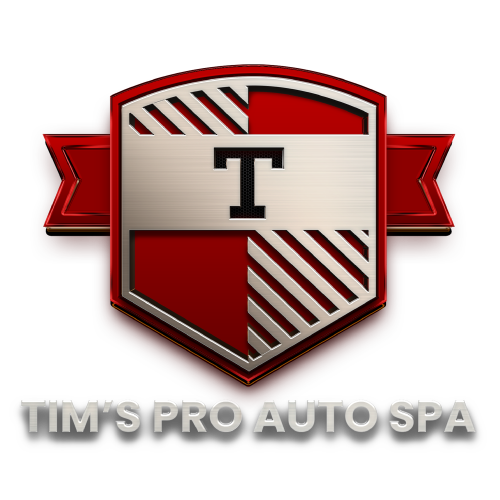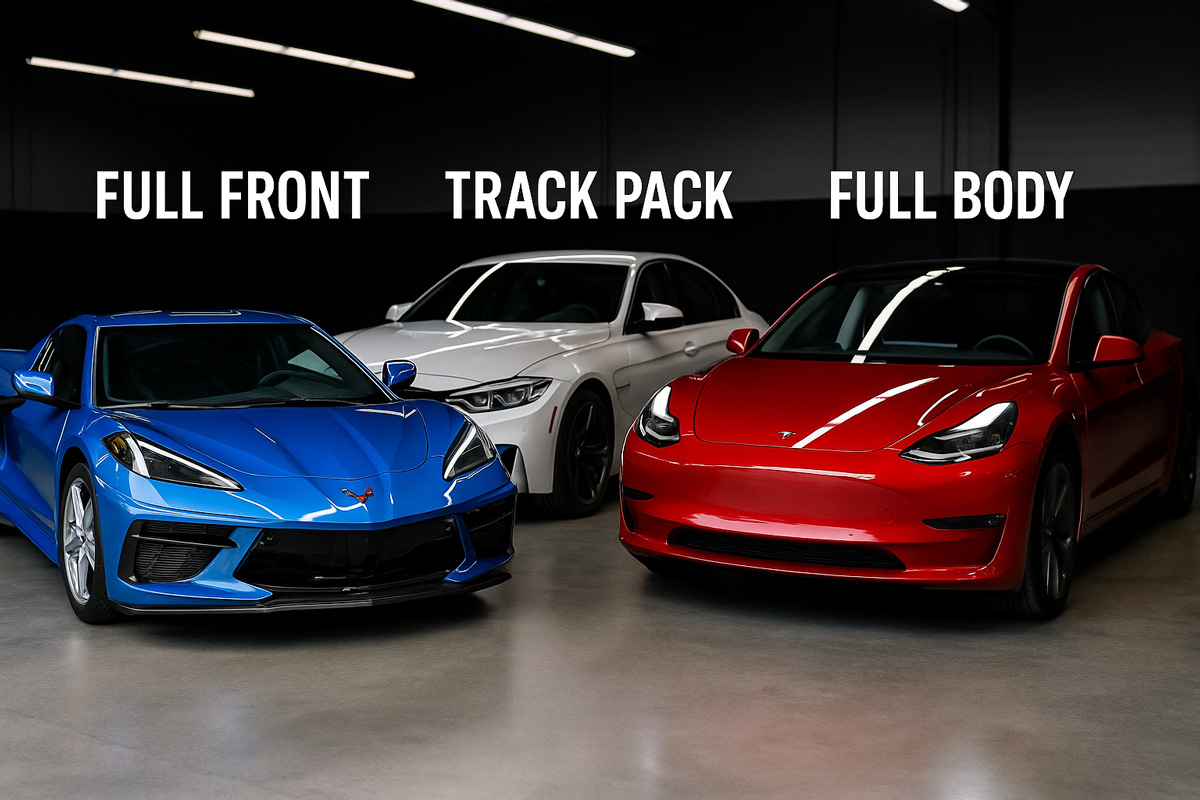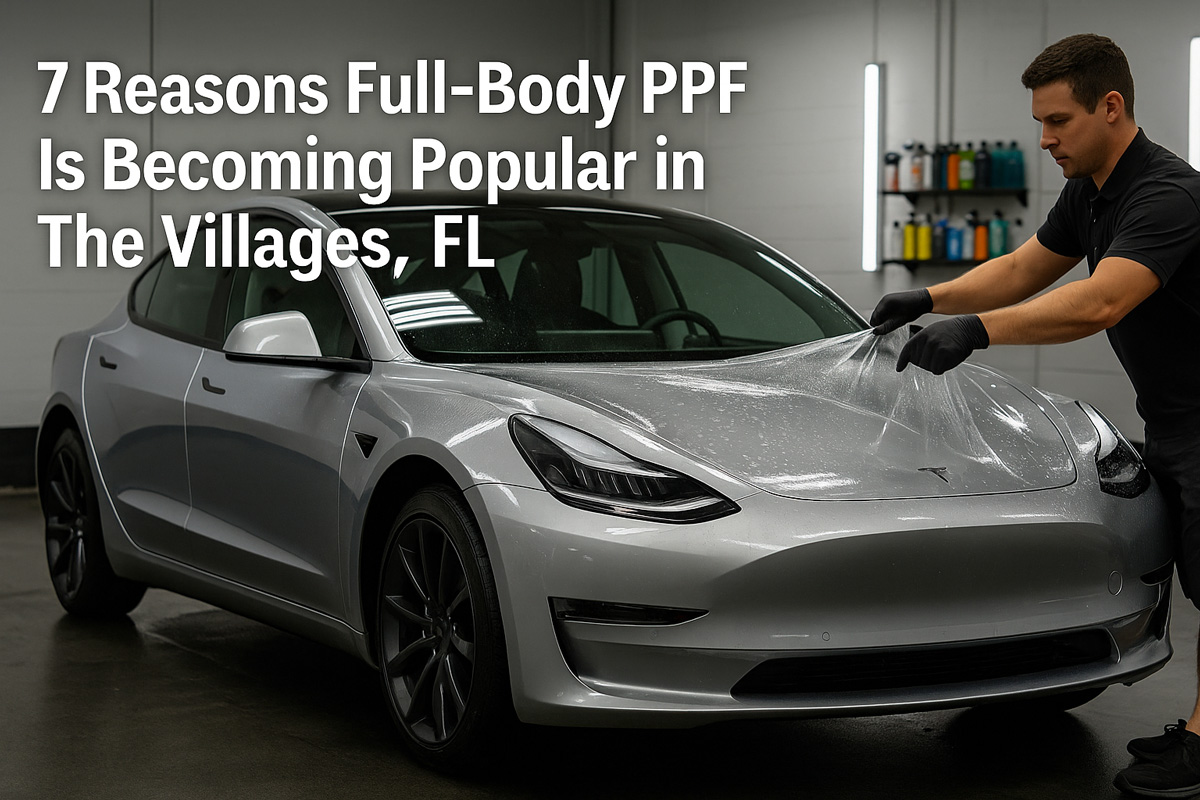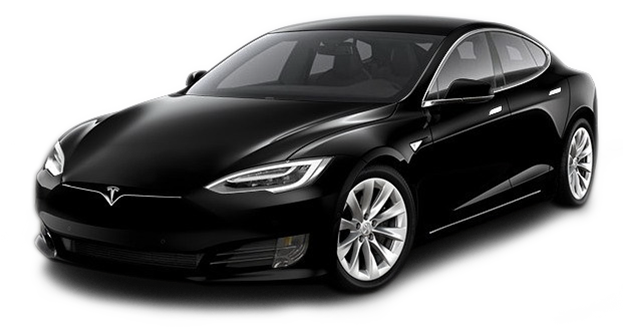Welcoming a new car into your life is a momentous occasion, and safeguarding its exterior is a wise investment. In this comprehensive guide, the expert team at Tim’s Pro Auto Spa in Wildwood, FL, explores the world of Paint Protection Film (PPF) and its profound impact on preserving your new vehicle’s longevity and aesthetic appeal.
From the optimal timing for application to the cost-effectiveness of PPF and maintenance, we provide the insights you need to make an informed decision. Join us as we delve into the advantages of PPF and showcase the best options available in Wildwood, FL.
When Is The Best Time To Get Paint Protection Film?
Applying Paint Protection Film (PPF) is critical for protecting the factory-fresh paint finish on your vehicle. Applying PPF immediately after purchasing a car is a proactive measure that creates an invisible layer that protects against everyday driving risks such as road debris, stone chips, bug splatter, and unpredictable weather conditions.
This early step establishes the framework for long-term protection, ensuring your car retains its beautiful appearance from the day it left the showroom. Even if your vehicle isn’t brand new, PPF substantially protects its beauty and increases resale value.
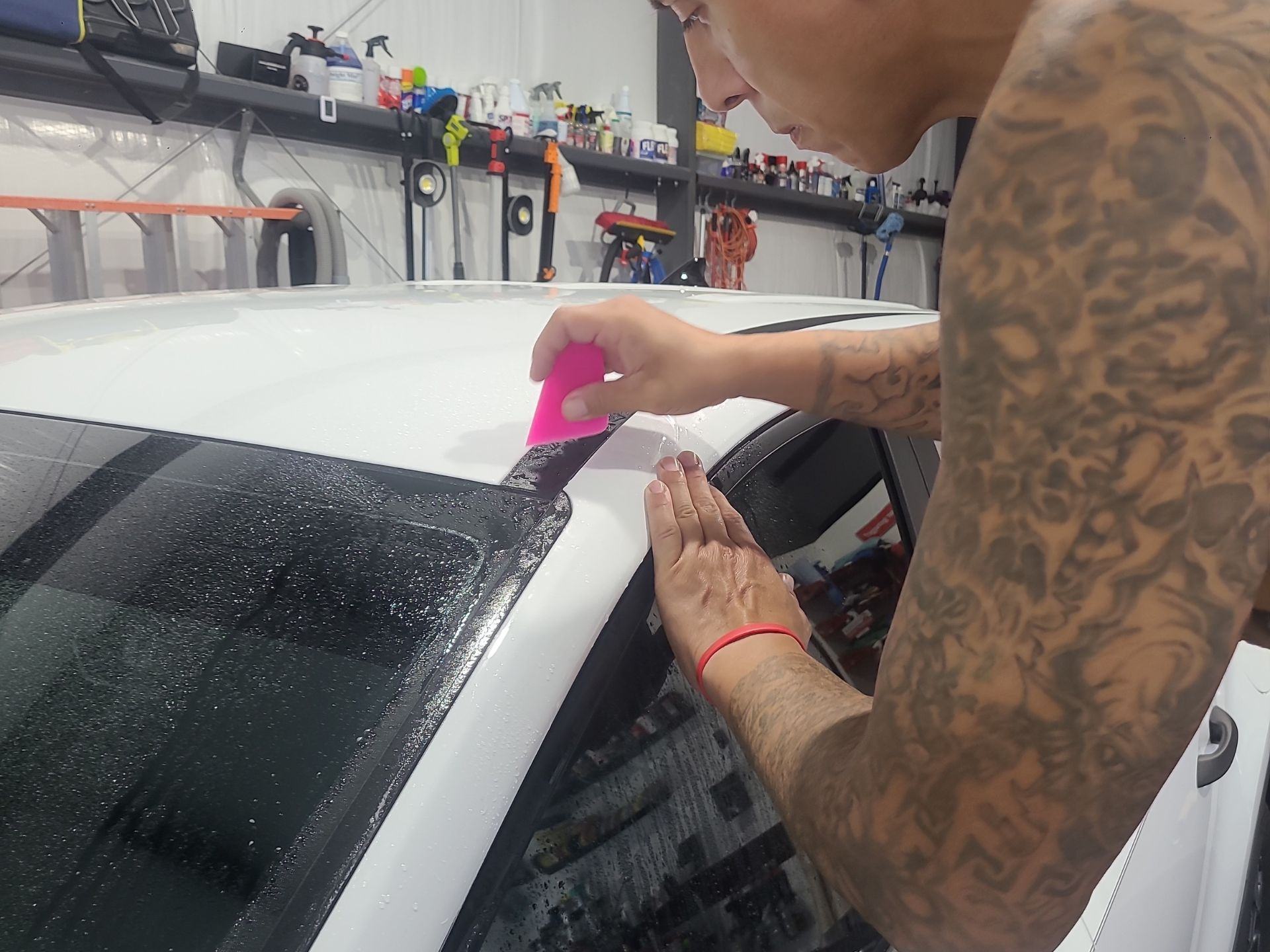
PPF benefits extend beyond the initial application, delivering a durable and reliable defense against the demands of the road, whether protecting a new investment or renewing the appearance of a slightly seasoned car.
Is PPF Worth The Cost On A New Car?
Many automobile owners are concerned about the lifetime of their vehicle’s exterior and wonder if Paint Protection Film is worth the investment. PPF, in addition to its original investment, is a robust insurance policy for your car’s paint finish. PPF absorbs the impact of road debris and environmental toxins as a sacrificial layer, preventing them from reaching the sensitive paint surface.
When considering the possible costs of repairing and repainting damage that could have been easily controlled, the cost-effectiveness of PPF becomes clear. In the long run, the initial investment in PPF is wise, giving returns on your vehicle’s appearance and resale value.
Are There Any Alternatives To Paint Protection Film On A New Car?
While Paint Protection Film (PPF) is a highly efficient solution for maintaining the exterior of a new car, there are various other options for people seeking alternate protective measures. Ceramic coatings, for example, offer a long-lasting liquid polymer sprayed directly into the vehicle’s paint.
This transparent layer chemically adheres to the factory paint, producing a hydrophobic surface that repels water, pollutants, and UV radiation. While ceramic coatings do not give the same physical impact resistance as PPF, they provide long-lasting protection and improve the vehicle’s gloss.
Another option is to use synthetic sealants or waxes to form a protective layer on the paint. These coatings are less complicated to apply than PPF or ceramic and can produce a glossy appearance. However, they require more regular reapplication than PPF or ceramic coatings.
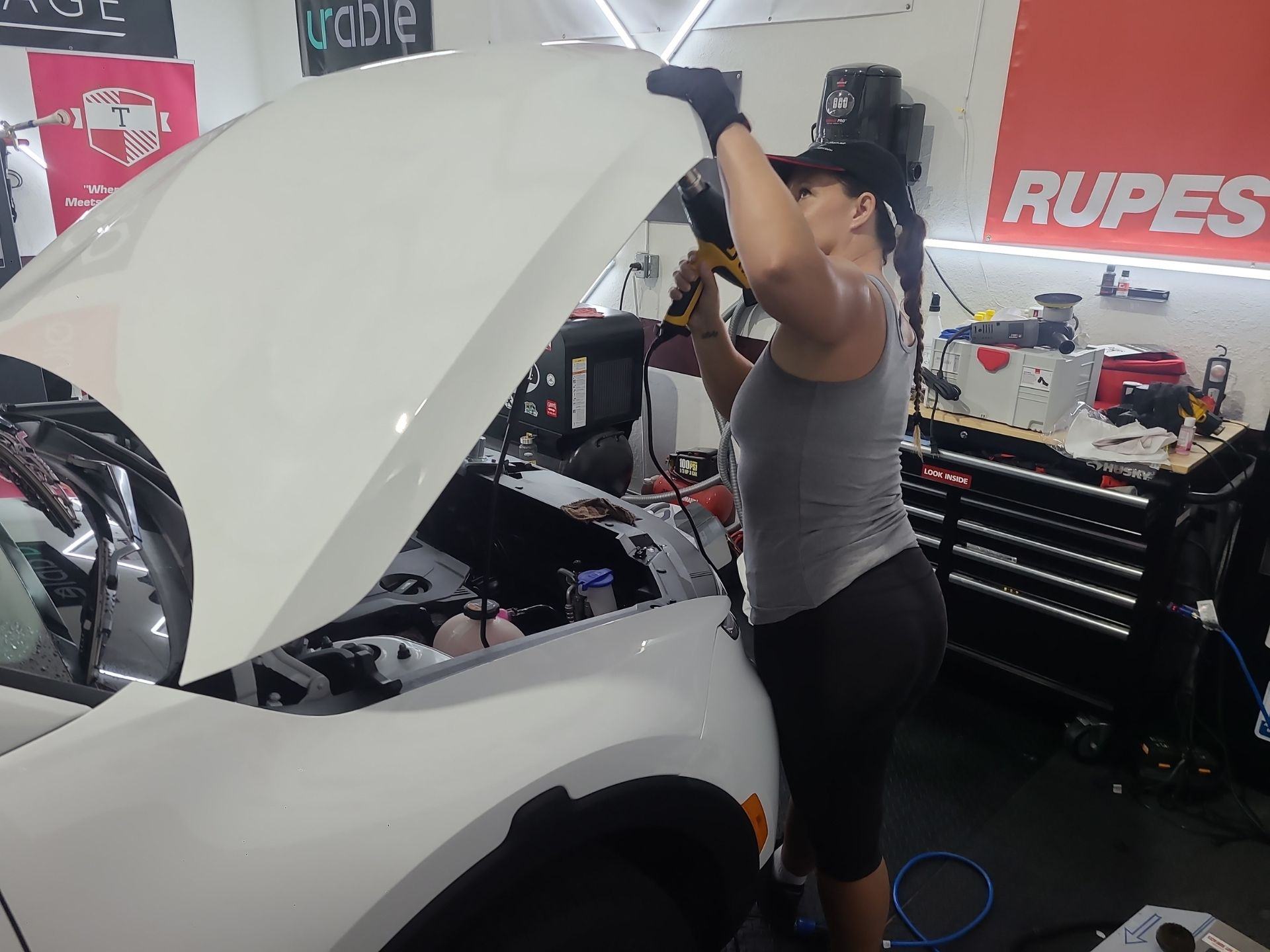
Clear bras or adhesive vinyl covers provide localized protection for areas prone to injury. These materials are applied to high-impact areas, such as the front bumper or hood, to protect them against stone chips and road debris.
Individual preferences, budget, and desired level of protection all influence the decision between PPF and its alternatives. Consultation with automotive professionals, such as the knowledgeable team at Tim’s Pro Auto Spa in Wildwood, FL, may assist you in making an informed decision based on your unique needs and priorities.
How Do You Maintain Paint Protection Film?
Maintaining the effectiveness and appearance of Paint Protection Film is a straightforward process that enhances its longevity. Follow these essential tips to ensure your PPF continues to provide optimal protection:
Regular Washing
Establish a routine of cleaning the PPF regularly using a mild automotive detergent and a soft sponge or microfiber cloth. Avoid harsh chemicals or abrasive materials that may compromise the film’s integrity. Gentle, regular washing helps eliminate contaminants and maintains the film’s clarity.
Avoid High-Pressure Washing
While PPF is durable, it’s advisable to steer clear of high-pressure washing directly on the film. High-pressure jets can lead to premature wear, compromising the film’s effectiveness. Opt for hand washing or utilize a touchless car wash system to protect the PPF.
Prompt Removal of Contaminants
Act promptly when faced with bird droppings, bug splatter, or tree sap on the PPF. These contaminants, if left unattended, can damage the film. Swift removal helps preserve the film’s integrity and ensures it continues to provide optimal protection.
By adhering to these maintenance practices, you enhance the longevity and effectiveness of your Paint Protection Film, keeping your car shielded against the challenges of everyday driving.
Read more: Two Of The Best Ways To Protect Your Car
The Best Paint Protection Film In Wildwood, FL
For those seeking premium Paint Protection Film options in Wildwood, FL, look no further than Tim’s Pro Auto Spa. Our expert team is dedicated to providing superior automotive protection solutions tailored to your needs. Located at 2840 Co Rd 523 Unit C10, Wildwood, FL 34785, Tim’s Pro Auto Spa offers a range of top-tier PPF options that cater to various preferences and requirements. Contact us at (352) 277-4721 to schedule a consultation and discover the best PPF solution for your new car.
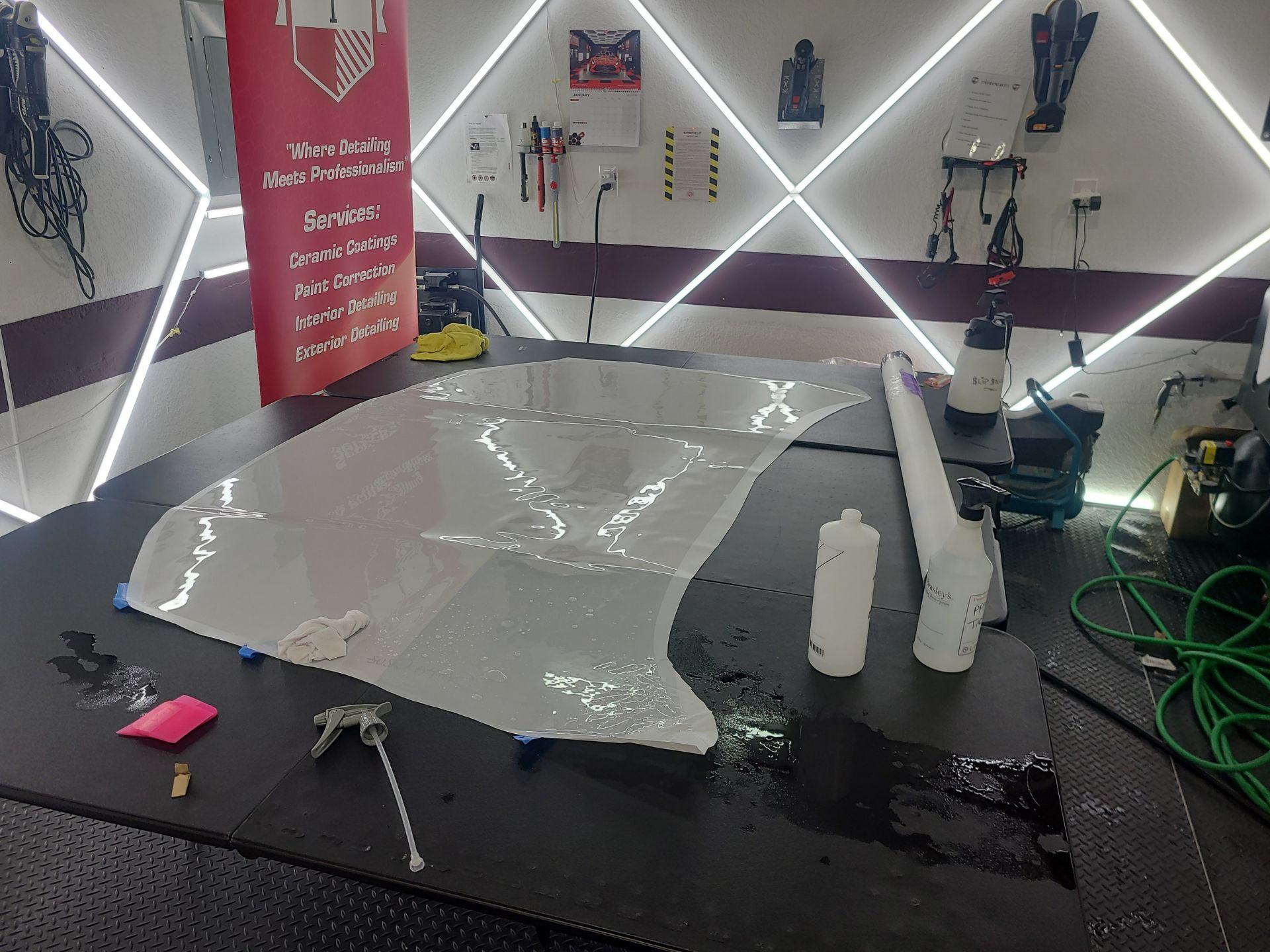
Investing in Paint Protection Film for your new car transcends aesthetics; it’s a strategic decision to safeguard your vehicle’s beauty and value. With its expertise and premium PPF options, Tim’s Pro Auto Spa stands as your trusted partner in ensuring your vehicle remains pristine.
Contact us today to delve into the world of PPF, explore the best options available in Wildwood, FL, and elevate the protection of your cherished automobile. Trust Tim’s Pro Auto Spa for automotive excellence that surpasses expectations, providing you with peace of mind on every drive.

